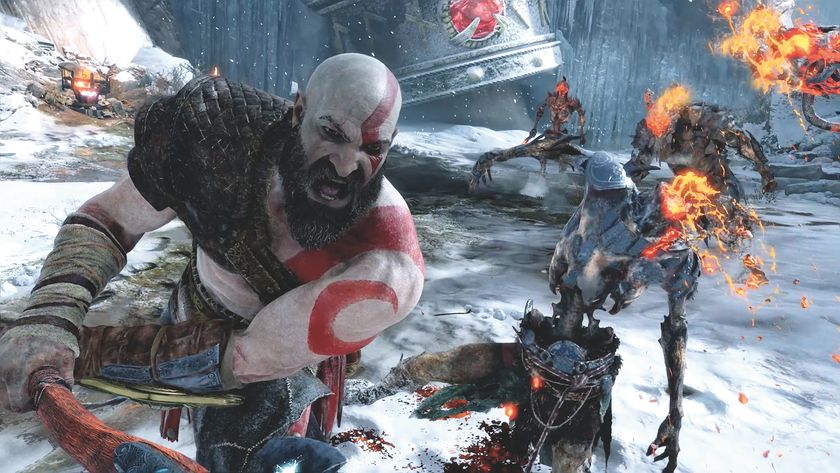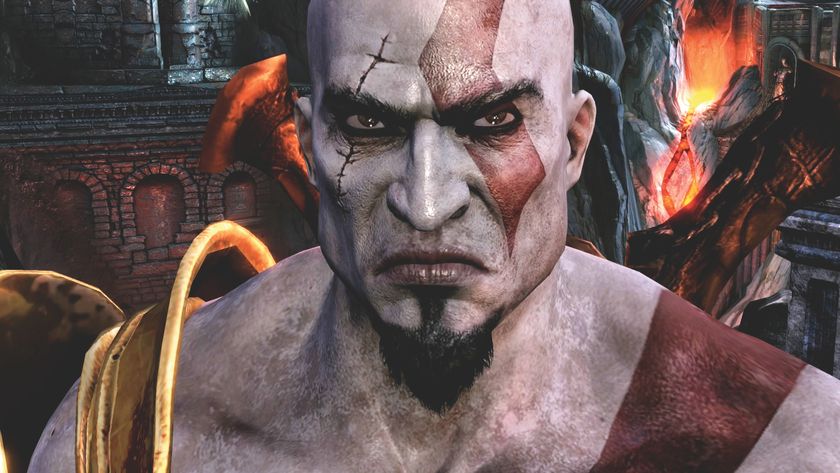Games that make you feel guilty for doing as you're told
A heavy burden to bear

These days, games are all about hitting you with tough choices. Do you save a village full of innocent people, if it means your friends will die? Do you choose to save the person who's friendly, or the person who's useful? Are you seriously going to murder a little girl for extra magic juice? These games want to make you feel like your choices have weight, and you should feel a sense of intense responsibility that pulls you into the game.
But then there are games where you don't have a choice, and not in an "illusion of choice" kind of way. I mean they straight up give you no options, forcing you to take a certain course of action. And even worse, they can still make you feel guilty even if you were just doing what you were told. It's an impressive game that can make you feel like garbage for a decision that you can't control - it takes a steady hand, careful build-up, and a deft understanding of how to emotionally destroy your players. I'm not sure if that's impressive, creepy, or both.
WARNING: Spoilers for every game in the image carousel above. I'd suggest clicking through that first (with your browser appropriately blocking any text) if you want to be SUPER safe.
Ending The Boss in Metal Gear 3

Technically your mission In Metal Gear Solid 3 is to recover a stolen nuclear device from human lightning rod Volgin and eliminate his entourage. But it's never really about preventing war between the world's greatest superpowers and saving millions of lives, is it? From the moment she tosses Snake off that bridge in Tselinoyarsk, you know this is about finding and ending The Boss. And when the moment comes, you feel like absolute trash for doing it.
Bless The Boss, she does try to make it easier. Throwing Snake off a bridge to his potential death doesn't inspire kind feelings, and the way she berates him as worthless, blows up his transport, and has her horse stomp his hand with the full force of its weight (Jesus lady) puts her squarely on your shit list. But then you realize she did all of that to push Snake to complete his mission and absorb her final lesson - loyal to country, above all else. So when you're towering over her with gun in hand, nothing left to do but end it all, you don't feel like a hero, or a Big Boss. You feel like the lowest bit of scum on Earth.
Being the real monster in Nier
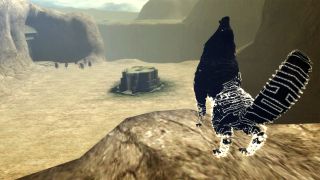
If you only play Nier once, this bit of orchestrated self-hatred might pass you by. After all, the ethereal and sinister shadow monsters known as Shades are ready to rip you apart, so why feel guilty for defending yourself? However, once you beat the game the first time and start a second playthrough, you get a nice little treasure for all your hard work: the ability to understand what the Shades are saying, with a few extra scenes starring Shade characters to clarify their backgrounds. And hey, turns out you're a murdering piece of shit.
It seems that while Nier and company think they're killing the Shades out of self-defense, the Shades are thinking the same thing - the humans will kill them and their shadowy loved ones if given the chance, so they have to strike first. As a result, you murdered a young woman after slaughtering her best friends in front of her, a young child and his guardian, and a gracious wolf spirit whose belief in mankind's kindness got his pack killed. And even when you know all of that, you still have to go through with that slaughter if you want to finish the game. It's like a giant sword right in the heart.
Sign up to the 12DOVE Newsletter
Weekly digests, tales from the communities you love, and more
Putting down Great Grey Wolf Sif in Dark Souls

Just like Dark Souls to wait until you least expect it to hit you with feelings. Under normal circumstances, you first encounter Great Grey Wolf Sif in the Darkroot Garden, where you engage in a pretty impressive but emotionally uncompromising battle. It may hurt a bit to watch her limp around when her health is nearly gone, but nothing a good sniffle won't cover. Plus, you really want that sweet sword she's swinging around.
However, once you play the Artorias of the Abyss DLC, you realize that Sif isn't as monstrous as she seems - she was once the faithful companion of Sir Artorias, who tried to save a doomed land from falling into the abyss but ultimately failed. He protected Sif with a spiritual barrier in his final moments, and ever since then she's been guarding his grave and his treasured sword. Which you just tried to steal. And even worse, you can actually save Sif from evil spirits surrounding her barrier in the DLC, and if you do so before reaching the Darkroot Garden, she clearly remembers what you did and makes her despair clear before reluctantly going ahead with the fight. Once again, the dog dies in the end.
The Legend of Zelda: Ocarina of Time (Allowing Ganon to take the Triforce)
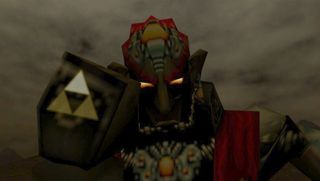
Ocarina of Time is a timeless classic with an equally timeless story: Hero defeats the bad guy, rescues the princess, and saves the world. However, in Ocarina, there's a catch: At one point, the hero gives the villain exactly what he wants, and there's no way for the player to stop it. It isn't immediately obvious what's going to happen. Zelda gives Link the ocarina, and he plays it at the Temple of Time to open the Sacred Realm and protect the Triforce. Then he's unexpectedly sealed away, just in time for Ganon to waltz through the door he opened. Oops.
When Link wakes up, Ganon has already used the artifact to plunge the world into chaos. You defeat him in the end, but it's hard to get around the fact that if Link and Zelda hadn't messed with the Temple, Ganon would've never gotten the Triforce in the first place. It feels like the destruction that followed is on Link's head and ours, but the next time we play we'll still have go to the Temple and do it all over again.
Hitman: Absolution (Maiming Diana)
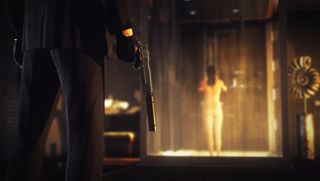
Agent 47 isn't really the friendly type. The people he's closest to are the ones he's put in a headlock,and he doesn't have much by way of loved ones. The one person you could call dear to him would be Diana, his handler, who seems to have his best interests at heart and sticks her neck out for him on multiple occasions. And then you have to kill her.
From 47's perspective, the reason Diana has been targeted is sound: she ran off with "agency property" (AKA a girl who was being experimented on, but ya know) and exposed the ICA, making her a major liability. But that doesn't stop 47 from being displeased about the whole thing, and the player doesn't feel much better. Surely we can let this one go, right? Turns out no--47 blows Diana away, and the player has to watch a person they've grown close to over the course of the series bleed out on a bathroom floor. I--I think I have something in my eye.
Assassin's Creed III (Killing the British soldiers)

In the current gaming environment, with your Call of Dutys and your Battlefields, the America, *** yeah! attitude is prevalent even when it probably shouldn't be. Our Canadian friends at Ubisoft Montreal know that, so when they made Assassin's Creed III--set in America during the Revolutionary War--they made sure to let the player know that the British soldiers aren't hellspawn. On the contrary, they're just regular guys doing their job, often as peacekeepers, and we shouldn't make rash assumptions about them... before we stab them in the neck for a treasure chest. Oh, okay.
Like many things in ACIII, this double-standard is jarring, though it is uniquely guilt-inducing. If these guys really aren't so awful, shouldn't we feel bad about throwing them off buildings? Why are there missions where we're required to kill these men (who might have wives and children at home) to get full sync? Yet you have to nonetheless, and suddenly you're firebombing a British fortress, killing hundreds of those dirty redcoats as they fly screaming through the air and oh my God I'm a monster.
God of War (The ritual sacrifice)

Let it never be said that Kratos is a nice guy. Wait, no one ever said that? Oh. His entire schtick is savage murder for fun and profit, so when we're in his sandals we have to expect some bloodshed. Most of the creatures Kratos fights are equally interested in killing him, so that usually doesn't create a crisis of conscience. However, everyone has their limits, and Kratos' probably should've been brutally murdering a man begging for his life.
The scene goes like this: Kratos needs to open a door. The door only opens via ritual sacrifice, and over Kratos' head are soldiers trapped in cages. He lowers one of the soldiers (who is grateful for about five seconds until he figures out what's up) who proceeds to scream and beg for mercy until Kratos roasts him alive. There's no alternative path, no more-difficult-but-morally-sound option; progressing is tied to horribly murdering an innocent man whether you like it or not. Some people liked that so little that the PAL version used a zombie instead, but we remember, God of War. We remember what you made us do.
Pikmin (Letting your little friends die)

Everybody loves Pikmin. I love Pikmin, you love Pikmin, people who've never heard of Pikmin love Pikmin--they just don't know it yet. Adorable and benevolent, the multi-talented creatures are happy to help you repair your spaceship without expecting anything in return. We start to actually care about the little buggers and want to protect them, so we feel like complete jerks when they inevitably get hurt.
While the game wants you to avoid losing as many Pikmin as possible--and there are consequences if too many die--it's just not possible to save them all. They march into perilous situations where predators and environmental hazards abound, so eventually something is going to get them: maybe a wayward geyser, or a giant mushroom creature waving its tongue around, or not making it back to the ship before time runs out (and they run behind you waving their little arms and oh my god). And yet they soldier on, falling to the perils of the Pik-world, all so you can get your spaceship fixed. For shame.
Spec Ops: The Line (Forcing you to murder innocents and then judging you)

If you took the phrase, "war is Hell" and added about eight hours of gameplay to it, you'd get Spec Ops: The Line. A military shooter that pulls zero punches about the psychological cataclysm that is war, it shocked audiences with how far it was willing to go. But we had no idea--not until chapter 8. Oh God, we were not prepared.
The developers wanted the now infamous white phosphorous scene to hit you as hard as possible. You're met with a wall of enemies that you simply can't defeat (believe us, we tried). Regenerating ammo vanishes from the area, too, leaving only the chemical--which is basically napalm if napalm was actually even more disturbing. You target little white dots on a screen, and fire. Easy enough, until you have to walk through the hellscape you've created, men burned to charcoal moaning for help and dying as you pass. But wait--remember that bigger cluster of dots at the back of the compound? Civilians. Men, women, and children, brutally and senselessly murdered by you. Because you pushed the button. Because you had no choice. I think I need to lie down...
Former Associate Editor at GamesRadar, Ashley is now Lead Writer at Respawn working on Apex Legends. She's a lover of FPS titles, horror games, and stealth games. If you can see her, you're already dead.

